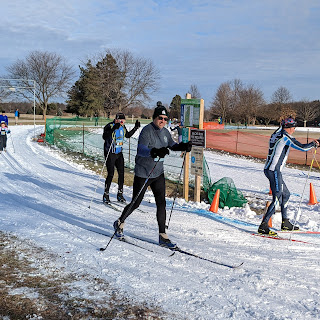The one question you can ask that is guaranteed to offend an adoptee
The more I open up about my personal experience trying to
find my birth father, the more convinced I become that people talk about
adoptee experiences from the wrong lens. There is an implicit bias toward the
adoptive parent perspective that can, and often does, negate the experience of
the adoptee.
I started really paying attention when people were asking me
why I waited so long to reach out to my birth father. That is a legitimate
question for his family to ask me, especially when considering he was in the
last stages of his life. For the general public, I have a different standard
and I would hope they would also ask me a second question, but few ever do. Did
your birth family ever come looking for you? The only people that ask are my
dearest friends.
For the most part, I try to answer the first question
sincerely and directly. Usually, I land on something like it took a long time
to make the decision because I did not want to hurt anyone but eventually I
realized I was only hurting myself. This question, by itself, is not nefarious
and does not cause any offense.
What stings is when people ask if I was afraid to hurt my
mom. I know adoptees hear questions like this all that time, weren’t you afraid
of hurting your birth parents? Almost all of the adoptees I have talked with wrestle
with this, but why do people feel compelled to ask that question? What are they
trying to say when they ask? That somehow, our need to feel whole should be
trumped by the needs of others? Are they trying to say we are dishonoring our
parents by trying to understand our own origin?
Sometimes the questions aren’t that direct. Several times in
the past few months, I have been politely reminded that I was loved and well
cared for as a child, which is absolutely true. I could always count on my mom,
at least one of my grandparents, and an aunt or two being in the audience of
every little league game, every band concert and my college graduation. Even
when money was impossible to find in our house, we always had food on the
table. The more I struggled as a teenager, the harder my family worked to make
sure that I knew I was loved. I don’t need any reminders how blessed I am to
have the love and support of my family and several friends so close they might
as well be family. I count these blessings often.
Asking me if I was afraid of hurting my mom make me wonder what
is underpinning the question? When I am being charitable, I land on the side of
people being insecure in their own relationships with their parents or children
and they are just projecting their fears onto me. All parents have some level
of fear that their children won’t love them as they wish to be loved. Most of
the time, that’s where I let it lie.
But there are times that I can’t help but feel the
questioning is more accusatory, blaming me for having an adopted father. It’s
as if simply wondering who my birth father was is an affront to the questioner;
simply wondering is a great disrespect to everyone who was involved in my live.
Except for me, of course. My opinions, my needs are seemingly irrelevant. I was
lucky that someone chose to step in, and I should accept that unquestioningly.
This attitude ignores a lot of reality for me and for other
adoptees. The trauma of being removed from your birth family, even at birth, is
something that stays with you. It is magnified if there was a long history of abuse in the
family. While the majority of adoptive families are loving and help their
children work through the trauma they have experienced, some adoptive families
inflict even more physical, emotional, sexual, and/or psychological abuse. Insisting
that adoptees should be grateful because they have been adopted only inflicts harm,
it does not help anyone.
While I am blessed to have always known my birth mother and
her family, and to have been shown a great deal of love from my adoptive dad’s
family, many adoptees have been separated from both parents at birth. My
daughter is an example, she left the hospital with her foster mother before we
adopted her, and we are all blessed that her foster family was so supportive.
While we have worked to help her heal from having been removed from her birth
parents, I know that it is natural for her to wonder about them and that
curiosity may result in her wanting to find them. Every adoptee wonders about
their birth parents, it is not a reflection on who their adoptive parents are
or how they were parented.
So please, if you are asking because you think the adoptee
you are speaking with isn’t sufficiently grateful, stop asking questions and
move on to a different conversation. You are not helping. But if you are
legitimately concerned and really want to be supportive, try asking if we have
the support we need from our adoptive parents. That simple change in your
approach will lead to better conversations and help the person you are talking
with understand that we all deserve to be counted amongst God’s children.


